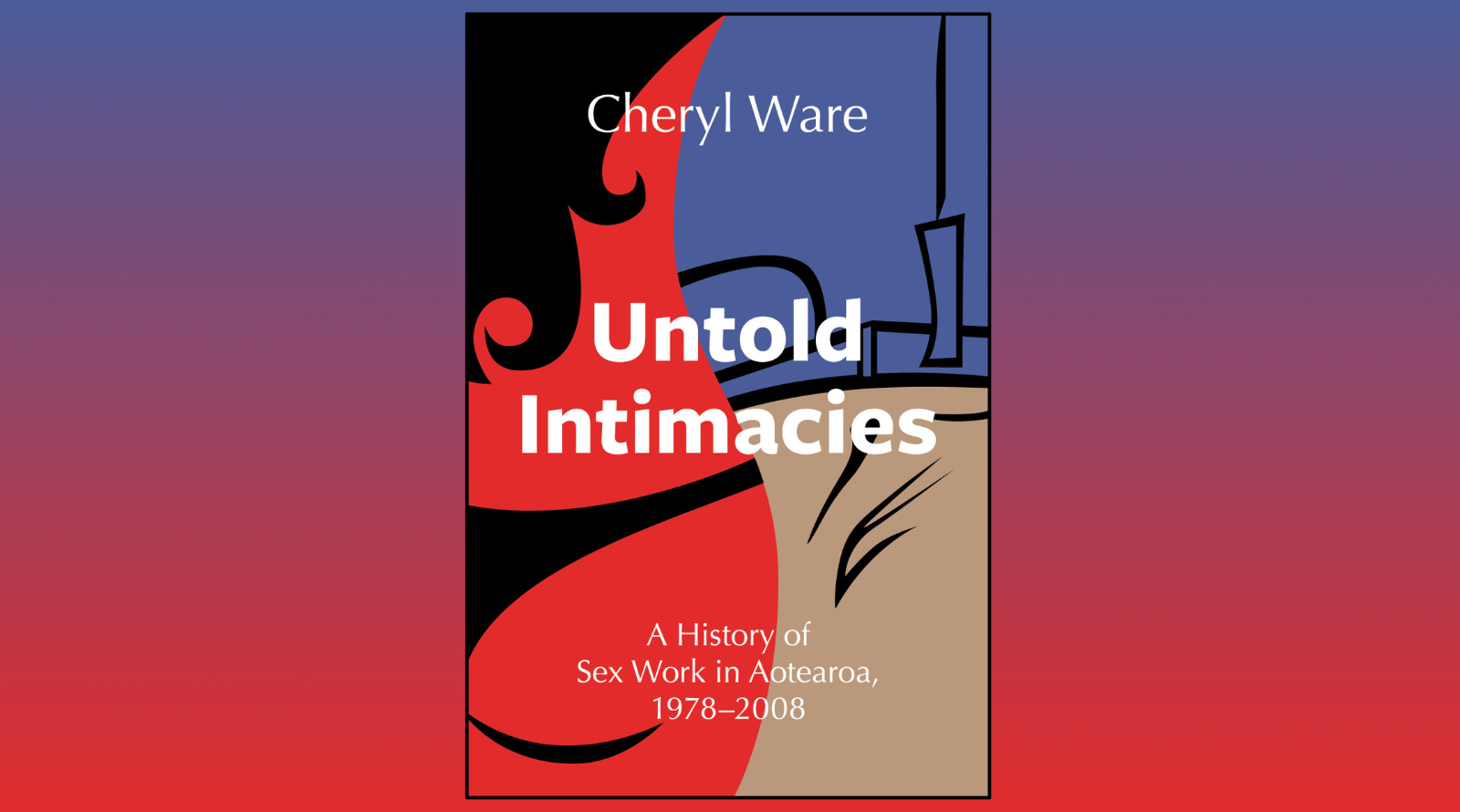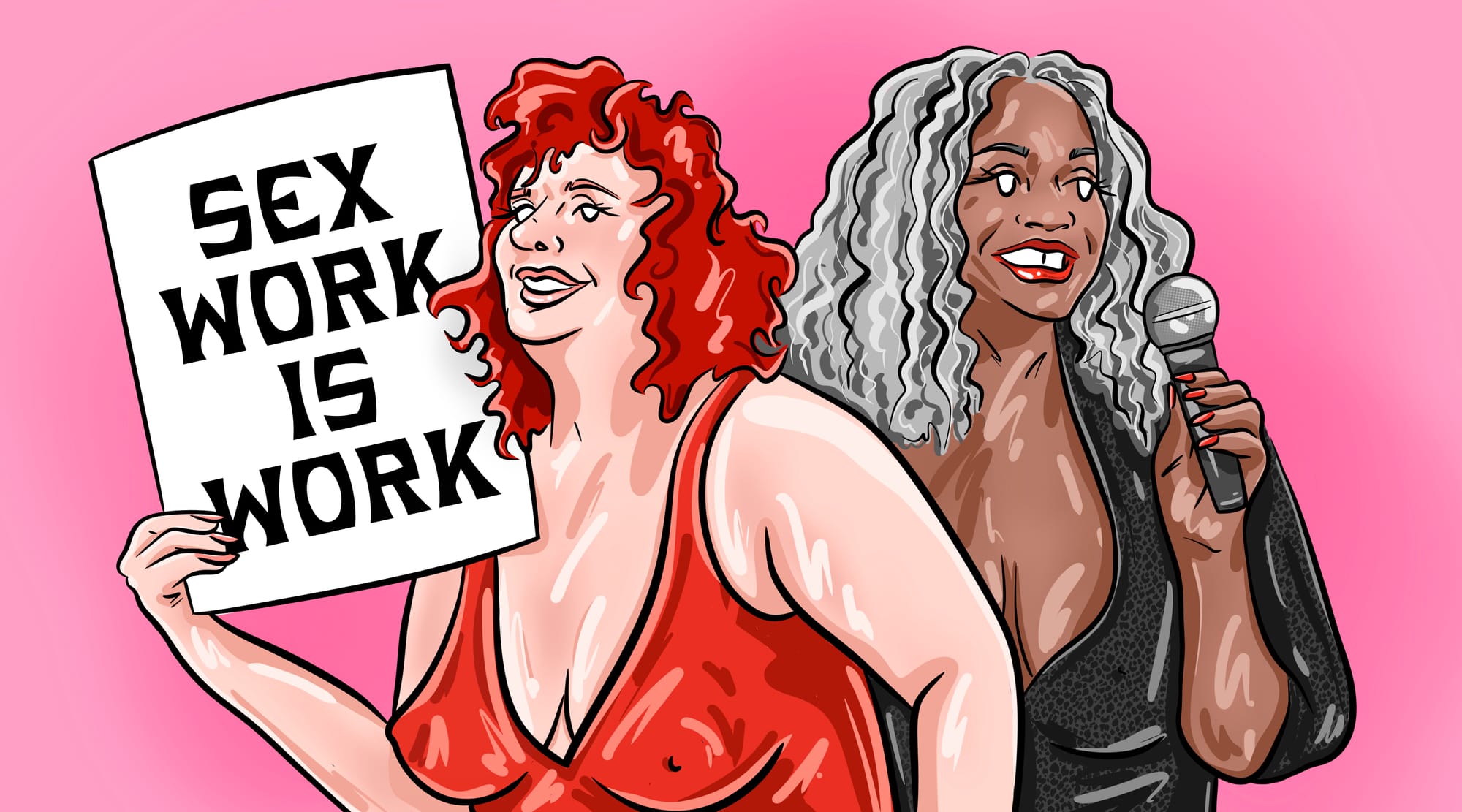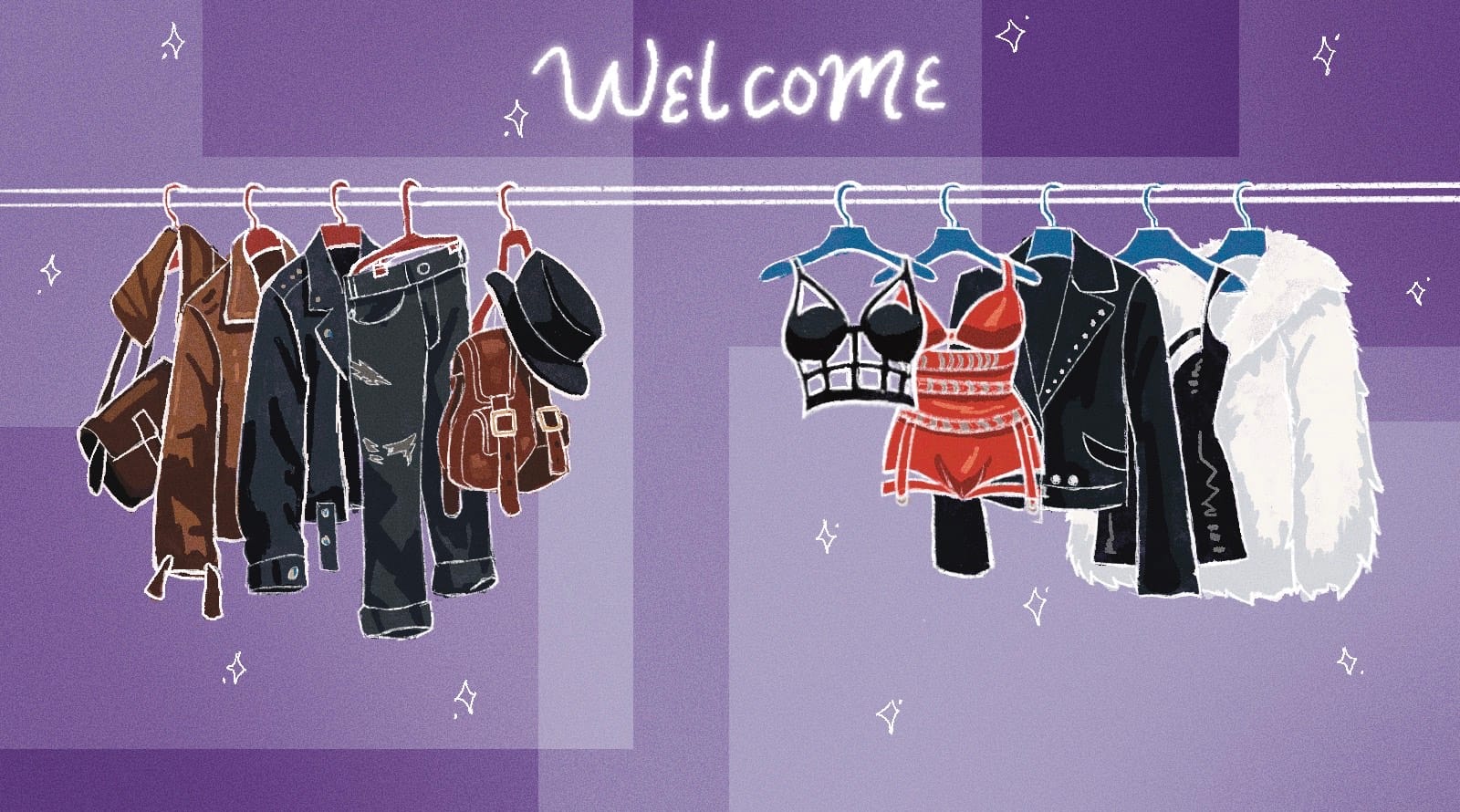Editor’s Note: mentions abuse by police
Untold Intimacies - a History of Sex Work in Aotearoa, 1978-2008 is a book written by Dr Cheryl Ware, a Senior Researcher at the University of Auckland’s School of Humanities. Untold Intimacies offers an intimate glimpse into an often-stigmatised aspect of Aotearoa’s past. Set against a rich tapestry of historical and political context, the book beautifully weaves stories from sex worker interviews to explore a variety of themes such as police brutality, social stigma, and the relentless fight for decriminalisation, capturing moments of resilience, hardship, and the spectrum of experiences in between.
As an accomplished oral historian specialising in gender and sexualities, Cheryl Ware brings a wealth of experience to collecting and interpreting stories from the past. Her previous work, HIV Survivors in Sydney: Memories of the Epidemic, sparked Ware's fascination with the history of sex work through her interviews with Australian gay men, many of whom shared experiences of working in the sex work industry. These stories showcased the shared histories of activism, resilience, and solidarity between queer communities and sex worker movements. Deciding it was time to write about the history of sex work in Aotearoa, Cheryl connected with Aotearoa’s Sex Workers Collective (formally NZPZ), many of whom were interviewed for this book. There were a total of 25 sex workers interviewed, and right from the book’s Acknowledgements Cheryl speaks to her gratitude for these workers for their time and trust.
What I especially love about Untold Intimacies is the diversity of the sex workers interviewed, encompassing a broad spectrum of identities. They are women, men, trans, mothers, queer, straight, Māori, Pasifika, Pākehā, and more, reflecting a multitude of experiences and perspectives that reflect the diversity of Aotearoa. This book would not exist without the courageous willingness of these sex workers to share such vulnerable and raw experiences from their pasts. These stories infuse the narrative with emotion, fleshing out the historical context.
This book is not just a mere historical account of sex work, it is also an exploration into humanity, connection, and the importance of community. Rather than a detached recounting of events, the book immerses readers in a journey through time, placing them alongside the workers as they recount their tales with raw honesty. Through revealing the often paradoxical nature of their relationship to their work, Untold Intimacies is able to humanise sex workers in a way that deeply touched my heart. In doing so, the workers come to life as multidimensional individuals, showcasing to readers that sex workers are human beings imbued with complexity, depth, and shared humanity. We cannot be placed into boxes or summarised through stereotypes, we are a diverse group of people who live amongst society just like everyone else. Though as the book shows, the reality of navigating life as a sex worker is not always easy.
What I especially love about Untold Intimacies is the diversity of the sex workers interviewed, encompassing a broad spectrum of identities.
The book does not shy away from the harsher realities of sex work during a period when the industry was still criminalised in Aotearoa. The opening chapter, “Working Alongside the Law”, plunges readers into Tāmaki Makaurau Auckland of the late 1970s, through the story of a whakawāhine worker who endured police harassment fuelled by whorephobia and transphobia. Right off the bat, readers are compelled to sit with the unsettling truth that such treatment was a grim, often inescapable reality for many sex workers at the time, leaving them feeling powerless against systemic oppression.
This sense of hopelessness would eventually be used as a motivator towards the grassroots formation of New Zealand's Prostitutes Collective (NZPC) in the 1980’s. As a current board member of NZPC, I always love learning about the history of this collective. I've had the privilege of hearing many of these narratives directly from NZPC members I now work with, a testament to the extraordinary courage of these workers as trailblazers. Throughout the book, we hear from a variety of voices who played a significant role in this fight, including Dame Catherine Healy and Anna Reed. Chapter Two, “The Cost of Going Public”, speaks to the sacrifices made by the workers who, tired of being shunned from society due to stigma and criminalization, decided it was time to fight back.
Chapter Three, “Finding Mentors and Community Building”, stands out as a highlight of the book for me. It powerfully underscores the vital role of community in sex work, illustrating how workers relied on each other for support and solidarity during the era of criminalisation. For trans sex workers, this sense of community is of particular significance. Trans workers with more experience often served as mentors, reflecting the intertwined histories of queer and sex work cultures. The practice of trans workers "adopting" peers and acting as surrogate working mothers speaks to deep-seated traditions of care. This resonates with contemporary drag culture, where drag houses and drag mothers provide community and guidance. This is a legacy tracing back to ballroom culture born in 1960s/70s American Black and Latina queer and sex worker communities. It's fascinating to see these cultural threads reach Aotearoa. This highlights the connections between sex work, queerness, and the enduring influence of ballroom heritage. This alone showcases how important books like Untold Histories are in recording history so future generations can feel connected to the past while moving towards the future.
This book is not just a mere historical account of sex work, it is also an exploration into humanity, connection, and the importance of community.
A downside of the book is the absence of voices from migrant sex workers; a gap reflecting the ongoing criminalisation of migrant sex work under Section 19 of the Prostitutes Reform Act in Aotearoa. Cheryl Ware notes this omission, recognising the significant risks migrant workers would face in sharing their stories, making their exclusion understandable in this context. Perhaps in time, when migrant sex work is decriminalised, we'll see a companion volume capturing the oral histories of migrant workers in Aotearoa, enriching our understanding of their experiences. I say when migrant sex work is decriminalised, not if, because I am confident one day this will become a reality. May this book serve as a reminder that the fight for decriminalisation is not over for migrant workers. Sex workers of Aotearoa need to be allies to our migrant whanaungatanga, who are still subject to much of the police harassment as outlined in Chapter One of Untold Intimacies.
Closing the final page of this book, I felt a profound connection to my sex work whakapapa (lineage). Not bound by blood, but linked by the powerful voices of workers who paved the way before me. Many of their stories resonated deeply, feeling achingly and inspiringly familiar. The gratitude I feel towards those who fought tirelessly for the decriminalisation of sex work in Aotearoa, securing the rights I have now, will always exist in my heart. The extraordinary strength and resilience of these workers is powerful; enduring immense challenges, yet reflecting on those years with a sense of fondness. I also feel immense love for the voices of those who may not have been a direct part of the fight, but by simply existing as a sex worker during this period in time, they are a part of an important lineage that can never be forgotten. The book neither vilifies nor romanticises the industry or its workers; it presents facts, shares lived experiences, and invites readers to glean lessons from the past.
I highly recommend this book to all sex workers, whether you live in Aotearoa or not. We must remember and share the stories of those who came before us; we cannot let our ancestors be forgotten. I also recommend this book to civilians. If you enjoy learning about history, especially through the lens of queer, gender, and sexualities studies, then this is a book for you.
Are you a sex worker with a story, opinion, news, or tips to share? We'd love to hear from you!
We started the tryst.link sex worker blog to help amplify those who aren't handed the mic and bring attention to the issues ya'll care about the most. Got a tale to tell? 👇☂️✨





